Search Results
Showing results 1 to 16 of 16
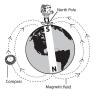
Dancing Compasses
Source Institutions
Learners use compasses to detect the magnetic field created by current moving through a wire. This is one of four activities learners can complete related to PhysicsQuest 2008.
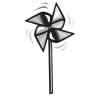
Magnet Powered Pinwheel
Source Institutions
Learners use the current flowing in a wire to create a magnetic field that turns a magnet. Learners can use this property of electromagnetism to build a magnet-powered pinwheel.
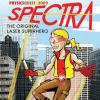
Twist & Shout
Source Institutions
Learners examine what happens when a tube spins in two directions at once. They push on a cardboard tube causing it to spin along its length while at the same time turning from end-to-end.
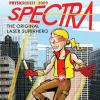
Light and Dark
Source Institutions
Learners examine the properties of light by experimenting with an LED-flashlight and polarizing filters. When two polarizers are used, they block all light when they are placed at right angles.

Doughy Physics
Source Institutions
Learners drop two different masses of play dough and observe how long it takes them to hit the ground.
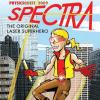
Glow in the Dark
Source Institutions
Learners experiment to see which colors of light will cause a phosphorescent (glow-in-the-dark) material to glow.
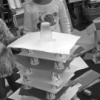
Apartment Buildings and More
Source Institutions
In this engineering activity, young learners investigate multi-level buildings.

Watch It Fly
Source Institutions
Learners observe projectile motion by launching wooden balls off of a table top. They set up a rubber-band launcher so that each ball experiences a consistent amount of force.

Disappearing Crystals
Source Institutions
Learners experiment with water gel crystals, or sodium polyacrylate crystals, which absorb hundreds of times their weight in water. When in pure water, the water gel crystals cannot be seen.

Shake It Up!
Source Institutions
Learners drop a magnet through a coil of wire to create electric current in a circuit. LEDs in the circuit allow learners to detect the direction of current flow.

Swinging Yo-Yo
Source Institutions
Learners build a pendulum from a yo-yo, and then design their own experiment to determine what affects the pendulum's period of swing.
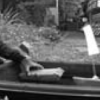
Boats Afloat
Source Institutions
In this water activity, learners build boats that float and sink. First, learners listen to the book, "Who Sank the Boat" and practice making predictions throughout the story.

Building Tall
Source Institutions
In this engineering activity (page 2 of PDF), young learners investigate how a wide base can make a building more stable. Learners use blocks or boxes of different sizes to construct stable towers.

From the Internet to Outer Space
Source Institutions
In this activity, learners will use Google Sky to observe features of the night sky and share their observations.

As Straight as a Pole
Source Institutions
In this engineering activity (page 3 of PDF), young learners investigate how a pole can be made stable by “planting” its base in the ground or adding supports to the base.
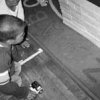
Designing a Wall
Source Institutions
In this engineering activity (page 5 of PDF), young learners investigate how materials and design contribute to the strength of a structure, particularly walls.
